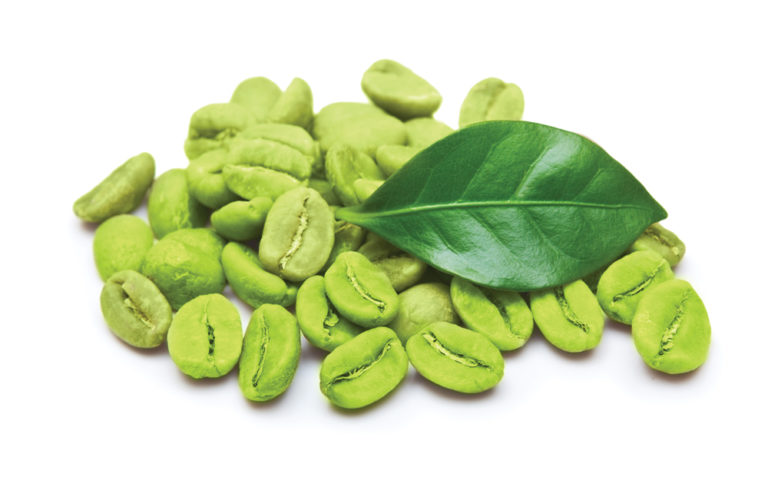Supplements can help, but lifestyle changes are mandatory.
The dietary supplement industry is crowded with “wonder” products that guarantee you’ll lose “20 pounds in 20 days” or your money back. The only “wonder” part of the product is often wondering where your money went when the product doesn’t deliver on its promise.
However, that is not to say that there are no supplements that can be useful in weight loss and healthy weight maintenance. There are clinically studied ingredients that may make weight-loss efforts more successful, but they can never compensate for the need to eat a clean, healthy diet and increase physical activity.
It may surprise you that 20 percent of all meals are eaten in the car, and Americans spend more time watching cooking on TV than actually cooking their own meals. In 1992, no state had an obesity rate above 15 percent, but just 20 years later, in 2012, two out of three states have an obesity rate higher than 25 percent. Much of this can be traced to problems with our food and food choices.
Eating a clean, healthy diet is not just about counting calories. Many recent studies have shown that food additives, preservatives, and trace amounts of hormone-disrupting pesticides and herbicides have played a significant role in the epidemic of obesity. Whether it is high fructose corn syrup’s (HFCS) altered metabolism increasing fat or aspartame and sucralose sweeteners actually increasing abdominal obesity, it is clear that the first step in having a healthier weight is to walk away from “Frankenfoods” and toward the organic produce aisle. This cannot be a temporary change but a commitment to cleaner eating, and an ongoing investment of time and money in quality foods.
The list of supplements discussed here to aid weight loss is not in any way all inclusive, and there are other natural product avenues that have some level of clinical validation. However, here are a few examples of products with current or past popularity in health food retail:
Iodine
Iodine is an essential mineral much in the news regarding the most optimal amount needed for brain function, fatigue and cancer prevention. It is the most crucial element for thyroid function. The thyroid gland manufactures thyroid hormone using the amino acid L-tyrosine and the mineral iodine.
The thyroid gland sets the rate at which the body burns fuel. It has been likened to a gas pedal in the car and a thermostat in the house. The fuel it burns are calories, so higher thyroid function burns more calories even at rest, and reduces the likelihood they will become stored energy, also known as fat cells. Low thyroid function slows the rate of calorie burning and is associated with weight gain.
America is in an iodine crisis, as status of iodine has dropped as much as 50 percent in the last few decades, while exposure to iodine’s competitors (most notably bromide, fluoride and chlorine) has greatly increased. Cancer of the thyroid gland has increased 300 percent in the last 30 years, and the No. 1 prescribed drug of 2014 in the U.S. was levothyroxine (Synthroid) for hypothyroidism, or low thyroid function. Interestingly, obesity has shot up to record levels over this same time period. While there is no simple reason for our current obesity epidemic, the increasing dysfunction of the thyroid gland could certainly be playing an important role.
In one study examining the iodine levels of obese vs. non-obese women, it was found that obese women had on average about 45 percent lower iodine status than women without obesity. That means their circulating iodine was just a little more than half the non-obese subjects—a very significant finding. Therefore, many integrative practitioners’ first step in helping individuals develop a healthy weight-loss or weight-maintenance program includes an evaluation of thyroid function that is far more in depth that the TSH levels currently in mainstream medical practice, and a trial of therapeutic iodine. Dosage levels vary, but many practitioners consider somewhere between 12.5 mg and 30 mg per day a good starting level that can be adjusted up or down as needed.
There is also debate on the best form of iodine. Products with blends of iodine are useful, with potassium iodide, molecular iodine and sodium iodine combinations popular, as each form functions slightly differently in the body.
White Kidney Bean Extract
On average, 52 percent of calories consumed by adults are carbohydrates and 55 percent of the caloric consumption of those under the age of 19. There are two types of carbohydrates: simple and complex. Sugar is a simple carbohydrate in that it does not need to be broken down to be absorbed. Pasta, bread, bagels, potatoes, crackers, chips, popcorn, rice, pita, oats and many more foods are complex carbohydrates, meaning the digestion process must first convert them to simple sugars prior to absorption. A compound called phaseolamin is found in white kidney bean and can combat this conversion. It partially blocks the activity of alpha amylase, and since the complex carbohydrate is not converted, it is excreted, reducing calorie absorption.
Multiple studies have shown effectiveness. In one 12-week study, the white kidney bean group lost seven pounds, and the placebo group gained a pound. More than 10 clinical studies show that use of white kidney bean extract for people who regularly consume carbohydrates can assist in weight loss. In clinical trials, dosages were 1000—1500 mg daily. Some individuals experience gas, bloating and flatus at this dosage level. A novel innovation is a highly purified and concentrated enteric coated white kidney bean with a dosage requirement of only 2 to 4 mg per meal. Using low dose concentrated extract bypasses stomach acid exposure, which can negate phaseolamin’s activity and high dosages are not needed. Lower dosages result in reduced or eliminated gas, bloating and/or flatus.
Soluble Fiber
Fiber has been incorporated into many diet plans for numerous reasons. Foods high in fiber often involve more chewing and subsequently more time for your brain to relay the “I’m full” signal to your stomach. Foods high in fiber also help create a feeling of satiety.
Fiber comes in two forms: soluble and insoluble. Many fruits and vegetables contain both types of fiber. Insoluble fiber does not dissolve and helps keep food and waste flowing freely through the GI tract. The soluble fiber easily dissolves in water. When soluble fibers come into contact with water they form a gelatinous substance.
One of the most interesting sources of insoluble fiber is brown seaweed. Soluble fibers from brown seaweed, called alginates, are used to construct the plant’s cell walls. When mixed with water, these alginates create a gel and can help control appetite.
In studies using brown seaweed, researchers found that it helps delay gastric emptying and nutrient absorption in the intestines. Alginates also help to increase the viscosity of digestive contents. Not only does this help to create a feeling of fullness, but also helps modulate glucose levels. The more viscous the digestive contents, the slower the rate of glucose absorption in the intestines. This is very helpful in controlling blood sugar levels, which in turn can trigger appetite. Because the brown seaweed species are natural, their nutritional composition and gelling ability can vary.
One of the challenges with using brown seaweed is the question of whether it will form a gel. Gel formation can be influenced by several factors, including stomach pH, mineral content in the stomach, guluronic acid concentration in the seaweed species, hydration status and delivery system of the alginate. According to researchers, the more viscous a gel, the greater its ability to control appetite.
Another form of soluble fiber used for weight loss is derived from the konjac root, which is rich in glucomannan. It, too, swells when exposed to fluids, increases satiety and slows intestinal absorption of sugar. Though these soluble fibers can be useful, these fibers may be contraindicated in individuals with esophageal strictures or other problems with the esophagus or throat. Because they are so good at absorbing fluids and quickly increasing in size and mass, which in very rare cases can become lodged in esophagus. In The Complete Guide to Herbal Medicine, authors Charles W. Fetrow and Juan R. Avila cite rare cases in which such blockages had to be surgically removed. However, as stated, this is extremely rare and should not be a risk for most healthy individuals.
Green Coffee Bean Extract
Researchers have identified a family of chlorogenic acids and other polyphenols in the green (unroasted) coffee bean that play a role in weight loss. Roasting destroys up to 70 percent of these beneficial compounds. A Brazilian study reported in the Journal of Nutrition showed that these compounds are easily absorbed by the body. When it is standardized to contain 40 to 50 percent chlorogenic acid, it facilitates calorie burning and lean body mass. The results of another human study, published in the journal Phytotherapie, it was found that participants using the extract lost almost twice as much of their initial weight compared to the placebo group.
Researchers believe chlorogenic acid from green coffee bean inhibits the action of glucose-6-phosphatase, an enzyme that releases glucose into the bloodstream for the body to use as energy. So green coffee bean extract may help the body burn fat, and limits the amount of sugar released into the bloodstream. Because blood sugar levels aren’t rapidly rising and falling, the theory is that one experiences fewer cravings, while burning calories at the same time.
However, there are several types of chlorogenic acids in green coffee bean and they occur in a natural ratio. One problem with supplements are that individuals may be selling a single chorlogenic acid that is not a full spectrum green coffee bean extract, so the research results cannot be extrapolated to products such as this.
After it exploded in popularity a few years ago, there has been unfortunate confusion and even duplicity surrounding green coffee bean research. In one of the more well-known cases, a popularly endorsed extract didn’t live up to its claims when it was disclosed that the research results had been falsified. There have been reports of coffee byproducts (i.e., roasted coffee bean dust) in a capsule that contain little or no chlorogenic acid. ConsumerLabs reported that “Green coffee bean extract (GCBE) supplements may help you lose weight. But ConsumerLab.com found that 50 percent of the supplements it recently selected for testing didn’t contain expected amounts of key chlorogenic acids — compounds associated with the extract’s weight-loss effects. Out of the eight green coffee bean extract supplements selected, one contained no extract and three others contained only 6 percent, 29 percent, and 82 percent of expected amounts, based on chemical analyses repeated in two independent laboratories.”
Sometimes the popularity of a product can lead to its demise as ineffective versions enter the market (especially in mass market) and diminish its reputation, but according to studies, natural, standardized (authentic) green coffee bean extract may play a role in assisting with healthy weight loss.
Conclusion
Although the weight-loss category may be rife with charlatans, there are legitimate supplements that can prove quite useful in helping to reduce or maintain a healthy weight. Weight loss and weight maintenance is hard work, and anything that can be used as a legitimate tool to aid in this effort should be valued and supported. VR
Resources:
Bray G, Nielsen SJ, Popkin B. Consumption of high-fructose corn syrup in beverages may play a role in the epidemic of obesity. American Society for Clinical Nutrition. 2004. Available on line at: http://ajcn.nutrition.org/content/79/4/537.full
Watching cooking vs. cooking statistics. http://www.huffingtonpost.com/dr-mark-hyman/family-dinner-how_b_806114.html. Accessed 04/23/2015.
Perrine CG. Some Subgroups of Reproductive Age Women in the United States May Be at Risk for Iodine Deficiency. J Nutr. 140: 1489–1494, 2010.
Statistics by IMS Health. http://www.webmd.com/news/20140805/top-10-drugs. Accessed on March 24, 2015.
Lecube A, Zafon C, Gromaz A, et al. Iodine deficiency is higher in morbid obesity in comparison with late after bariatric surgery and non-obese women. Obes Surg. 2015 Jan;25(1):85-9. doi:10.1007/s11695-014-1313-z. PubMed PMID: 24908244. Available at: http://www.ncbi.nlm.nih.gov/pubmed/24908244
Celleno L, Tolaini MV, D’Amore A, Perricone NV, Preuss HG. A Dietary supplement containing standardized Phaseolus vulgaris extract influences body composition of overweight men and women. Int J Med Sci. 2007 Jan 24;4(1):45-52. PubMed PMID: 17299581; PubMed Central PMCID: PMC1796956.
Dietary Fibers from Brown Algae Help People Lose More Weight. Available at: http://www.news-medical.net/news/20111209/Dietary-fibers-from-brown-algae-help-people-lose-more-weight.aspx. Accessed March 18, 2015
The Side Effects of Konjac Root. Available at: http://www.livestrong.com/article/149231-side-effects-of-konjac-root/. Accessed Mach 20, 2015.
Farah A, De Paulis T, Trugo LC, Martin PR. Effect of roasting on the formation of chlorogenic acid lactones in coffee. J Agric Food Chem. 2005;53:1505–13.
Farah A, Monteiro M, Donangelo CM, Lafay S. Chlorogenic acids from green coffee extract are highly bioavailable in humans. J Nutr. 2008 Dec;138(12):2309-15.
Dellalibera O, Lemaire B, Lafay S. Svetol®, green coffee extract, induces weight loss and increases the lean to fat mass ratio in volunteers with overweight problem. Phytotherapie. 2006;4(4):194–197.
Nardon K, Lemaire B & Lafay S. Green coffee extract can manage weight: a review. AgroFOOD industry hi-tech 18(5 -Supplement), 2007; 37-39.
Blum J, Lemaire B, Lafay S. Effect of a green decaffeinated coffee extract on glycaemia. NutraFoods Res. 2007;6:13–7.
Phillip, A. “Researchers retract bogus, Dr. Oz-touted study on green coffee bean weight-loss pills.” Washington Post, October 22, 2014. Available at: . Accessed March 19, 2015.
ConsumerLab report: 50% green coffee bean extracts don’t deliver expected ingredients. Available at: https://www.consumerlab.com/reviews/green_coffee_%20extract_weight_loss/greencoffee/
Cheryl Myers is an integrative health nurse, author, and an expert on natural medicine. She is a nationally recognized speaker who has been interviewed by the New York Times, Wall Street Journal and Prevention magazine. Her many articles have been published in such diverse journals as Aesthetic Surgery Journal and Nutrition in Complementary Care, and her research on botanicals has been presented at the American College of Obstetrics and Gynecology and the North American Menopause Society. Myers is the head of Scientific Affairs and Education for EuroPharma, Inc.






![[Sponsored Video] Special Report: Bergamonte®, the Untold Story](https://vitaminretailer.com/wp-content/uploads/2023/06/sponsored-video-special-report-b-300x169-1707947265.jpg)






